When it comes to elevating interior or exterior spaces, wall paneling plays a vital role in both function and aesthetics. Wood paneling for walls, including wooden panels and louvered wall panel options, are two of the most important choices available today. Though they’re both famous for adding to the aesthetic of a space, durability usually clinches it when it comes to longevity.
If you’re after the design of a stylish modern home, commercial space or an office setup, make sure you select the wall panel type that will provide the best performance under your conditions. While we consider durability, functionality, maintenance, cost – and many other aspects – we will give you a complete comparison between wooden panels and louver panels in this blog.
What Are Wooden Panels?
Wooden panels are traditional cladding materials made from natural or engineered wood. Or like say teak or oak, they may be made from solid wood or as composite material such as MDF (Medium Density Fibreboard), HDF (High density Fibreboard) or plywood. Due to their warmth, organic texture and natural grain pattern, wood paneling for walls has become widely used for ceilings, cabinetry and furniture as well.
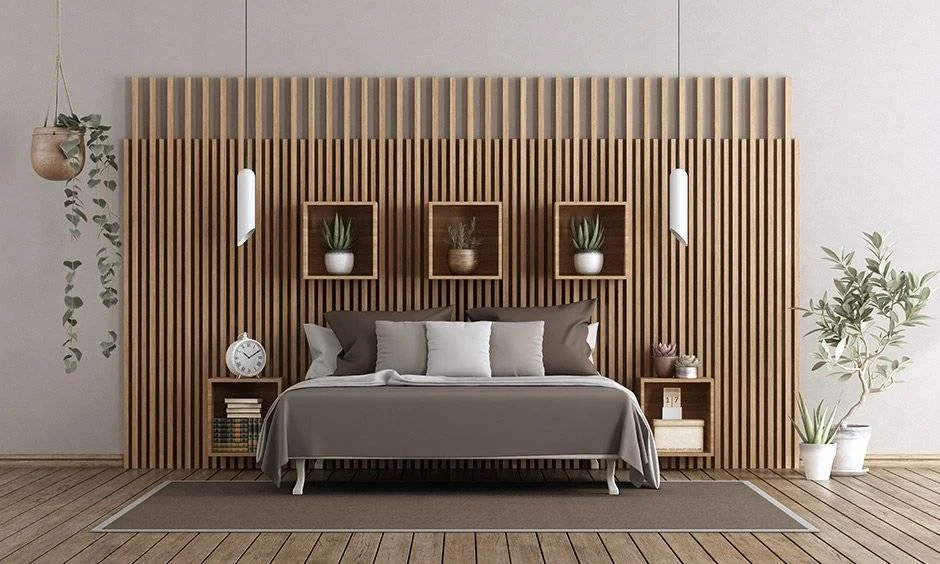
Their classic charm cannot be beaten and they make excellent acoustic wood panels, will provide thermal resistance and offer visual warmth. With hosts of uses, they are ideal for living rooms, bedrooms, boardrooms and boutique interiors and bestow a luxurious, elegant finish, much enjoyed by few other materials.
Wooden panels, however, need an exterior finish to stop things like moisture damage, pest infestation or warping, especially if in wet or high-traffic environments.
What Are Louver Panels?
Louver panels are also referred to as slatted panels, angled slats or strips fixed at regular intervals. They can be constructed from any number of materials such as PVC, WPC (Wood-Plastic Composite), MDF, aluminum or engineered wood. A louvered wall panel first began life as a useful ventilation feature, but with modern design has become a highly aesthetic, multi-purpose wall solution.
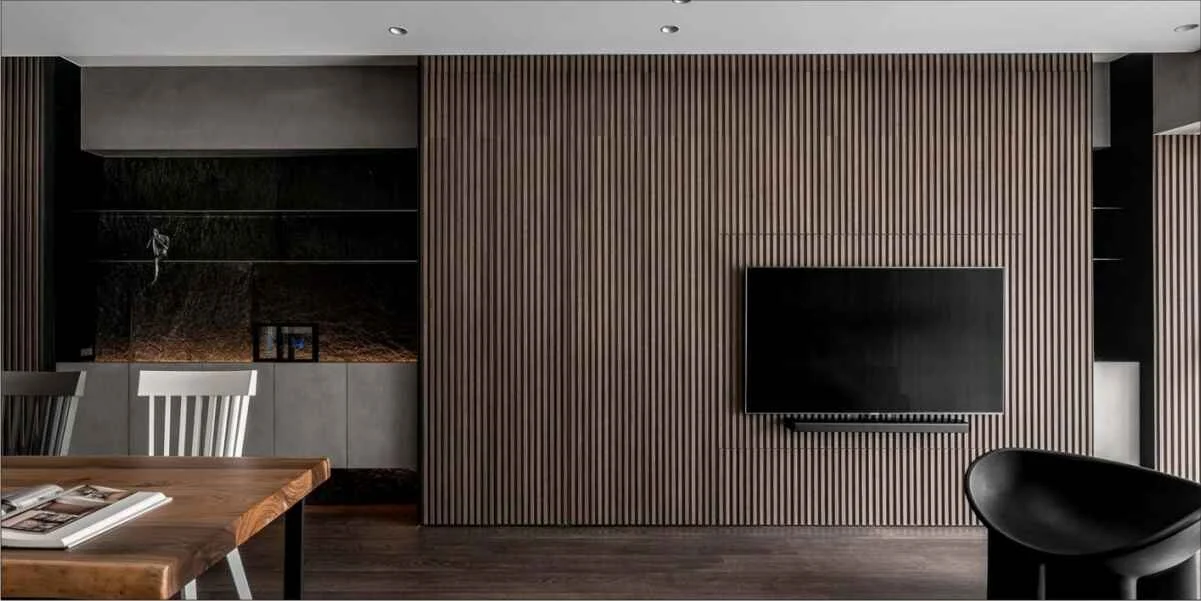
Sleek, minimalist design, geometric appeal, favoured for modern, industrial, or urban themed interiors, makes them the perfect choice. Wall décor, false ceilings, facades, room dividers, and even exterior cladding employ louver panels. These sit well because their design naturally controls airflow and ventilation and, when manufactured from synthetic materials, offer good resistance to moisture and weathering.
Louver panels are created from our modular format, easy to install and maintain, rapidly becoming the preferred choice for architects, interior designers and commercial developers.
Durability Comparison: Wooden Panels vs Louver Panels
Let’s break down the comparison based on key durability factors:
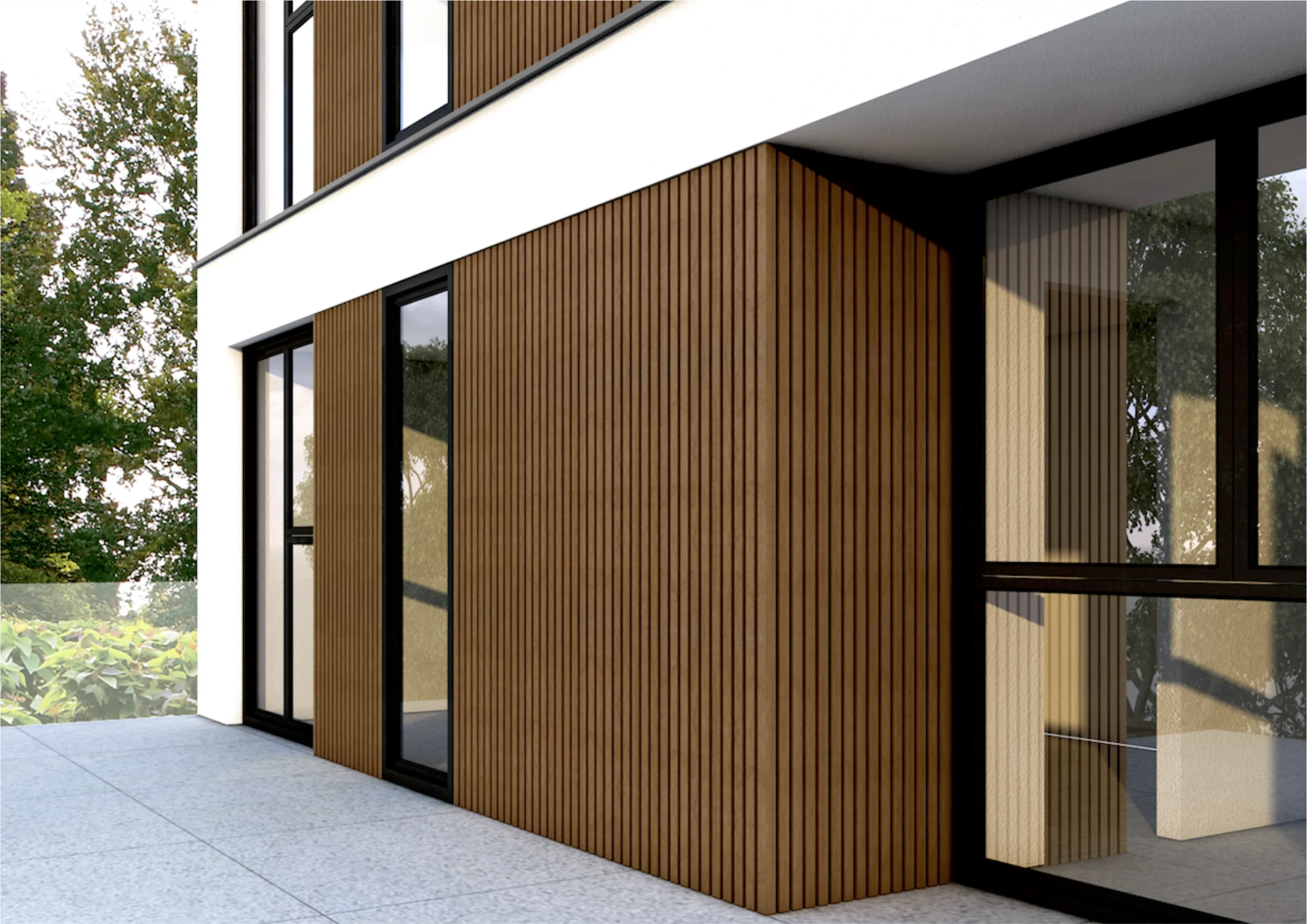
1. Moisture and Humidity Resistance
Wooden Panels: Nearest to natural wood, it is highly absorbent and in damp places it will expand, swell and decay. Wooden panels are susceptible to deterioration in bathrooms, kitchens or coastal areas, without the benefit of regular sealing or coating.
Louver Panels: Especially those made from WPC, PVC, or treated MDF are inherently resistant to moisture. No matter how wet the atmosphere, they don’t swell, crack or rot, so they are tough as nails for any style of interiors or semi-outdoor applications.
Winner: Louver panels are a better choice in moisture-prone areas.
2. Termite and Pest Resistance
Wooden Panels: If that wood isn’t treated with anti-termite chemicals, it’s a natural target for termites, borers and other pests. The protection can wear off, however and at best might need to be repeated.
Louver Panels: Louver panels are made from synthetic or composite materials, and by their nature of design, termite-proof and pest resistant, they are built to last, also don’t require additional chemical treatments for long-term safety.
Winner: Louver panels offer better protection from pests, especially in regions prone to termite infestations.
3. Environmental Stability
Wooden Panels: Due to temperature variations and seasonal humidity, these panels can expand, contract, and crack. Otherwise, over the years, this can result in gaps in the joints, unevenness at the surface, or even structural instability.
Louver Panels: Louver panels are manufactured to be able to resist stress due to weather changes and maintain their shape and form across any condition. But composite board materials, their composition ensures dimensional stability for even outdoor applications.
Winner: Louver panels provide greater resilience across diverse climatic conditions.
4. Maintenance Requirements
Wooden Panels: They require ongoing care i.e., polishing, varnishing, sealing or painting to maintain their finish; and to retard deterioration. Also, dirt and dust can settle in between the grains or grooves and need deep cleaning.
Louver Panels: Require minimal maintenance. They can be kept looking clean with a simple dusting or wiped down with a damp cloth. They have a smooth surface so grime won’t build up, and you don’t have to worry about any polishing.
Winner: Louver panels are low-maintenance and more practical for busy spaces.
5. Expected Lifespan
Wooden Panels: Proper care can make your high-quality wood panels last for decades. Although they need regular maintenance and can be damaged by the environment, their practical lifespan tends to be reduced.
Louver Panels: The panels are designed for high endurance, expected to wear off in 15 – 25 years or more, depending on the material. In particular, WPC or aluminum louvers have a very long lifetime.
Winner: Louver panels are more durable and long-lasting with less maintenance.
Aesthetic & Design Flexibility
While durability matters, design and aesthetics also play a vital role in panel selection.
Wooden Panels: They offer rich textures, warm tones, and can be custom-carved, grooved, or stained in endless finishing options. Perfect for classic, heritage and hotel lobbies, they convey a feeling of good heritage and class to a room.
Louver Panels: Rapidly deliver clean linear designs that are ready for modern, minimalistic and industrial interiors. Because of that, they’re also available in multiple colors, patterns and even wood grain textures, which helps designers be creative.
Verdict: Wooden Panels exude timeless elegance and luxury, while Louver Panels offer sleek modernity and versatile design freedom.
Eco-Friendliness and Sustainability
Wooden Panels: Certified forests and plantations have a successful growth and harvest rotation cycle and are generally sustainable if used appropriately. But deforestation also comes in the form of large-scale logging of exotic woods. The next engineered wood options are more eco-conscious.
Louver Panels: Even louver panels (especially those of the WPC type) are made from recycled plastics and wood fibers, a highly eco-friendly and low-carbon-footprint alternative to the waste of materials.
Verdict: Louver panels are more sustainable for environmentally conscious projects.
Cost and Installation
Wooden Panels: More expensive to install because of the premium wood and labor costs. In high end applications, however, the appearance may justify the expense.
Import Louvers Charcoal Panel Today!
Louver Panels: Lightweight, easy to install and often with DIY friendly click or screw systems, frequently meaning you can save labour costs and time. Plus, they are more economical as louvers panel price is generally lower than premium wooden options.
Verdict: Louver panels are budget-friendly and faster to install.
Final Verdict: Which One Should You Choose?
| Factor |
Winner |
| Moisture Resistance |
Louver Panels |
| Pest Protection |
Louver Panels |
| Climate Adaptability |
Louver Panels |
| Maintenance |
Louver Panels |
| Long-Term Durability |
Louver Panels |
| Premium Visual Aesthetics |
Wooden Panels |
| Custom Design Capabilities |
Wooden Panels |
Megan Cera – Leading Louvers Charcoal Panel Manufacturer and Exporter
Megan Cera manufactures and exports premium quality louvers and charcoal panels, trusted in the interior and architectural design industry. Whether you're looking for high-end acoustic wood panels or modern louvered wall panel options, Megan Cera offers durable and stylish solutions. With transparent louvers panel price and charcoal louvers price, Megan Cera combines innovative design with state-of-the-art technology to give a comprehensive line of sturdy, termite-resistant and moisture-proof panels for direct use in residential as well as commercial applications.
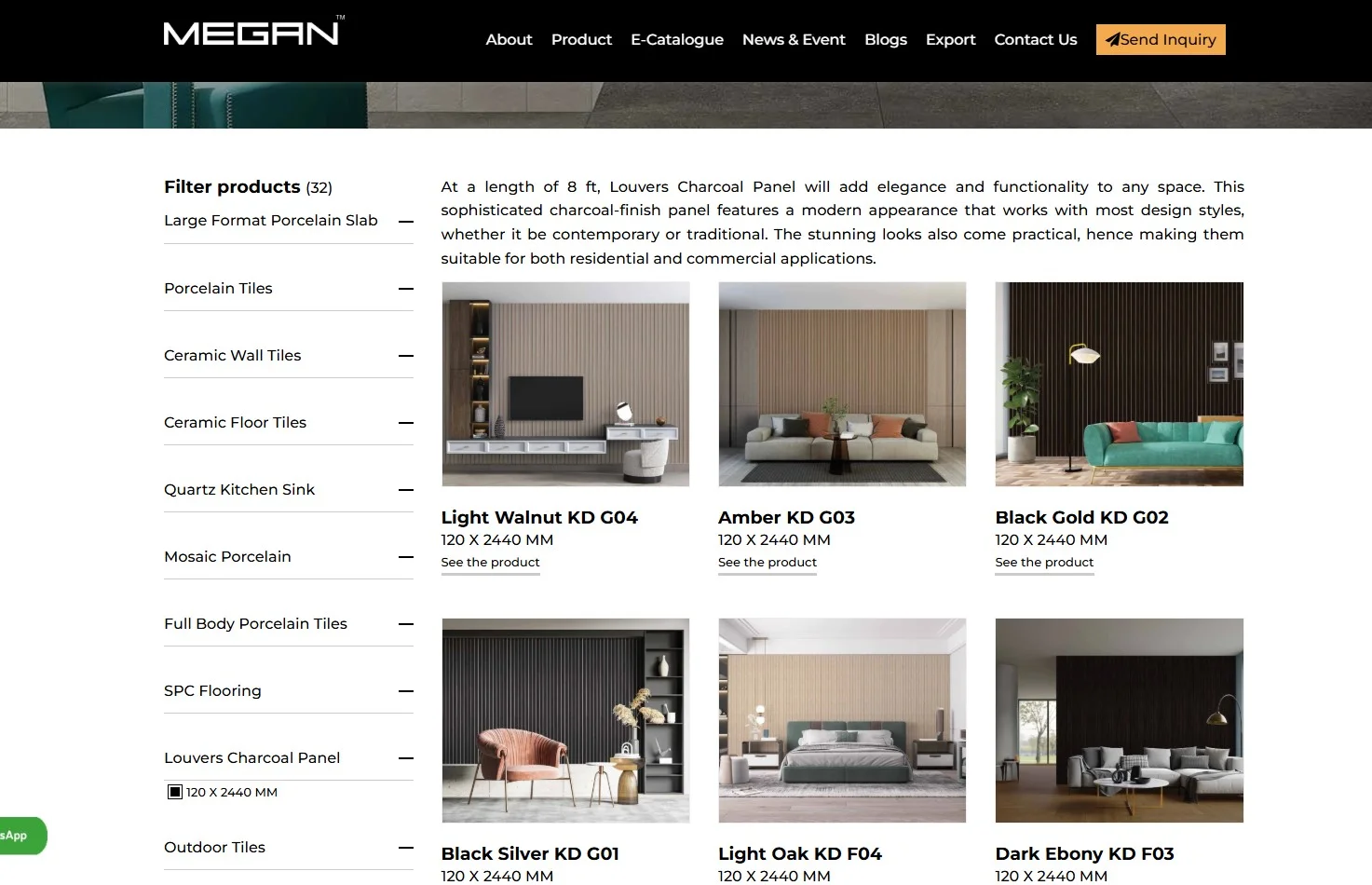
A strictly aesthetic, sustainable and performant company, the company delivers stylish solutions blended with modern interiors. With its strong backing from advanced production facilities and firm commitment to quality, Megan Cera has become a trusted global supplier, providing top quality to all markets.
Conclusion
If the decision between wooden panels vs louver panels ultimately comes down to which would best serve your project’s goals, then a wooden panel makes sense. If you're after durability, resistance and upkeep worry-free, louver panels are indeed your ultimate choice. Due to their versatile applications and modern appearance, they are suited for residential, retail as well as commercial spaces.
On the other hand, wood paneling for walls remains unmatched in elegance and warmth, if you need rich textures, a traditional charm or whose custom craftsmanship needs can’t be met by merely replacing your walls with a tiring monotony.
But always be sure to source your panels from credible manufacturers and certified suppliers, who see to it that they observe quality, material safety and innovation when creating their products.








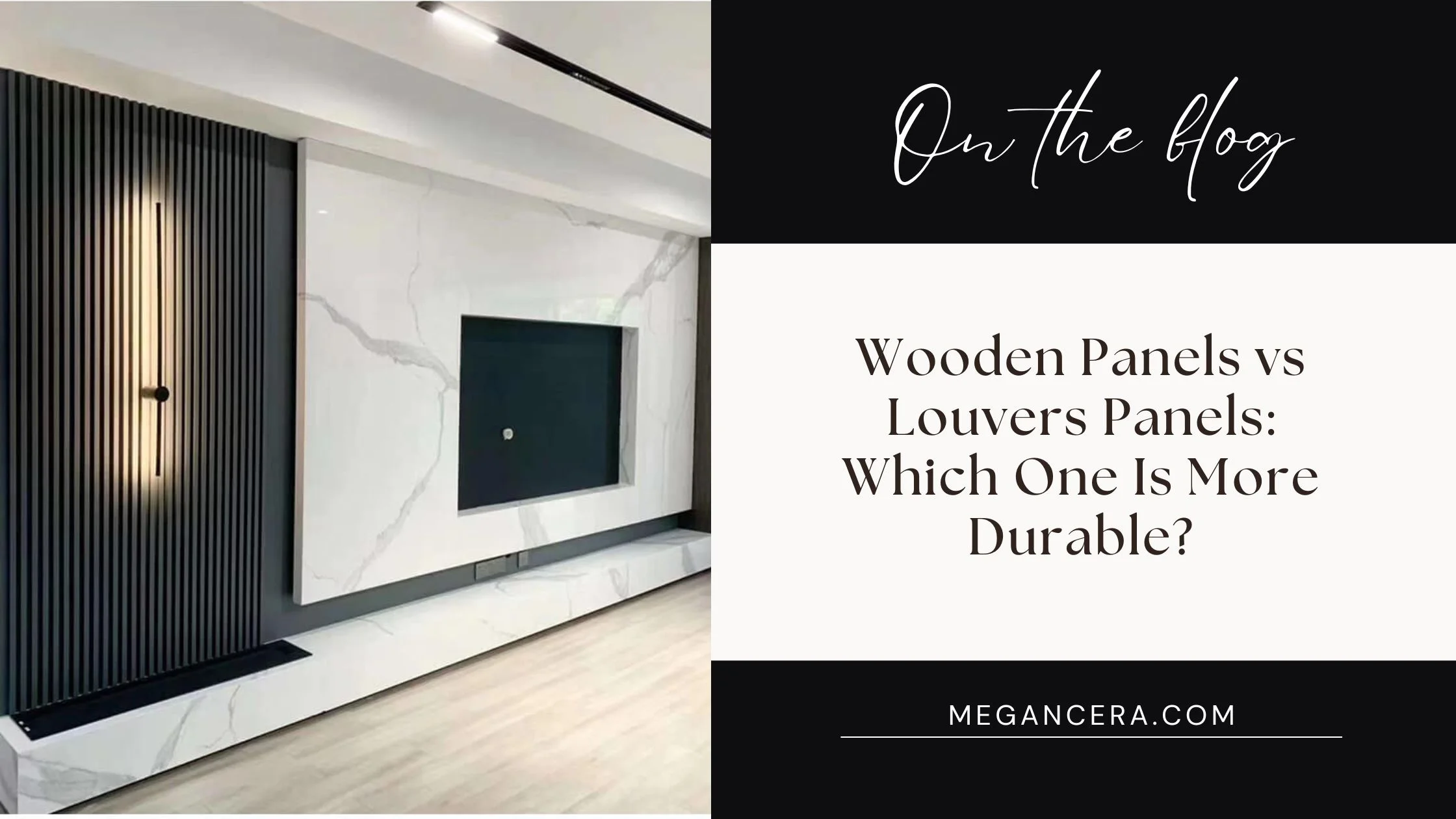
 Live Photos & Videos
Live Photos & Videos